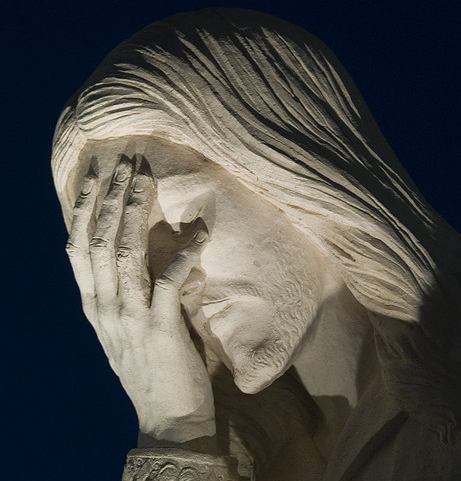Treating a craft supply store like a religion is an affront to faith — and sets a very dangerous precedent for healthcare access and equality.
 I’m not going to try to argue the finer points of the Supreme Court’s ruling in the Hobby Lobby case. I’m not a SCOTUS scholar.
I’m not going to try to argue the finer points of the Supreme Court’s ruling in the Hobby Lobby case. I’m not a SCOTUS scholar.
But I am a woman, and I have some very strong opinions about this ruling. It’s discrimination, plain and simple. I’m angry on behalf of every woman who will now have to fight for her right to obtain birth control — even if she uses it strictly for medical purposes that have nothing to do with preventing pregnancy, which many women do. At the same time, whose business is it what women choose to do with their own bodies? We need someone with a hammer the size of the Supreme Court’s to make it clear that women’s healthcare decisions are their own, and no one else’s. Period. End of discussion.
As angry as I am on behalf of women, I am equally upset for people of faith — true faith, not the kind that spreads hate and fear in the name of religion. I’m not a religious person, but I am empathetic. Having religious beliefs lumped in with profits made off selling glue guns and cheap items made in China demeans their faith.
I’m honestly not surprised that SCOTUS ruled as they did. The majority has proven time and time again that they’re a corporatist court, and they’re going to rule against the little guy (or gal) every chance they get. But that doesn’t mean I’m not upset — and very, very concerned about what the future will hold.
I promise you, there are plenty of companies out there that will rush deny their female employees birth control coverage, even though it’s the best way there is to prevent pregnancy short of abstinence. (To expect adults to practice abstinence is simply absurd.) Women who want to avoid getting pregnant will now have to pay more for the privilege, unless they’re in a relationship with a man who will pay his fair share.
Even more troubling is what could come down the road. The fact that SCOTUS said this ruling does not apply to things like blood transfusions or vaccinations doesn’t mean challenges won’t be brought forth. Anyone who has a “religious objection” can bring suit to claim they don’t want to cover a particular treatment or medication. Just because this SCOTUS made it clear it won’t give those cases validity doesn’t mean another one won’t.
The idea that no one will use this ruling as a precedent to apply religious objections to discriminate against anyone, for any reason, is extraordinarily short-sighted. They will, and mark my words it won’t be long before those cases enter our court system.
First, SCOTUS gave corporations the same rights as people and now they have given them the same rights as religions. Does that mean that someday closely held corporations owned by religious people will no longer have to pay taxes, just like churches? Corporations already enjoy plenty of tax privileges so the idea isn’t as far-fetched as all that.
I may have a more thoughtful response to all this after I stop being furious. But right now, I’m angry on behalf of women who keep having to fight the same fight over and over. And I’m sad on behalf of the people who want to practice their religion with dignity. They’re losers in this decision, too.
[CC photo credit: BJ Bumgarner | Flickr]



